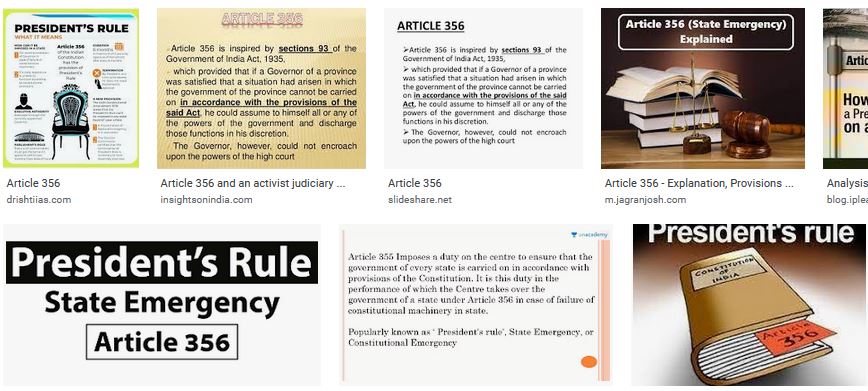Misuse of Article 356 of the Indian constitution
Article 356 in Part XIII of the constitution provides for the proclamation of Emergency by the President in any state where there is a breakdown of constitutional machinery either based on the report of the Governor or even otherwise. The Article emphasizes the supremacy of the constitution and national unity and integrity. The state governments … Read more






